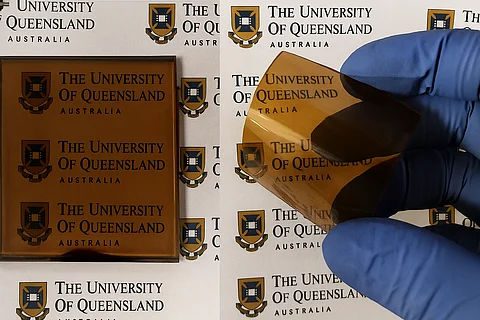

Key Takeaways:
AIBN and Halocell Energy have secured funding to develop and test real-world THP modules
Tin Halide Perovskites offer a safer, eco-friendly alternative to lead-based cells
The initiative aims to deliver eco-friendly, low-cost solar tech for use in electronics and smart devices
Although perovskite technology for solar cells presents challenges in terms of its stability and durability compared to conventional silicon-based cells, extensive research is underway to match or integrate it with silicon-based technologies. Various institutes worldwide indicate significant potential to reduce manufacturing costs of perovskite modules by up to 60% compared to conventional solar modules.
In addition to reliability concerns, the use of lead in perovskite cells raises environmental issues, and tin is emerging as a potential alternative. In April 2025, TaiyangNews reported a lab-scale cell efficiency milestone for a tin halide perovskite (THP) by the University of Queensland’s AIBN (Australian Institute for Bioengineering and Nanotechnology): Lead-Free ‘Perovskites-Only’ Solar Cell Reaches 16.65% Efficiency.
Efforts to scale this lab achievement are in progress. To speed this up, Dr. Peng Chen, a researcher at AIBN, secured approximately $200,000 through Australia’s Economic Accelerator Ignite fund. As part of this initiative, Halocell Energy is partnering with AIBN to commercialize tin-based perovskite modules.
AIBN researchers and Paul Moonie, CEO of Halocell, see strong demand for cost-effective, efficient, and eco-friendly solar cells. The funding will support the development of real-world modules and enable testing across indoor and outdoor environments, says Dr. Chen.
Dr. Chen also envisions THP panels being integrated into household devices, wearables, and unmanned aerial vehicles. Sharing his excitement to help bring lead-free perovskite to market, Moonie said,
“We’re thrilled to be part of this project and to help fast-track the transition from cutting-edge research to real-world applications. This initiative will help create the first generation of lead-free perovskite solar panels, unlocking a multi-million-dollar market in indoor solar cells, portable electronics, and smart home applications.”
